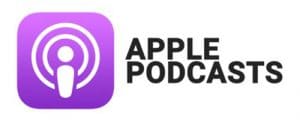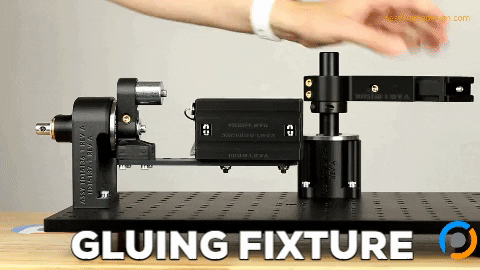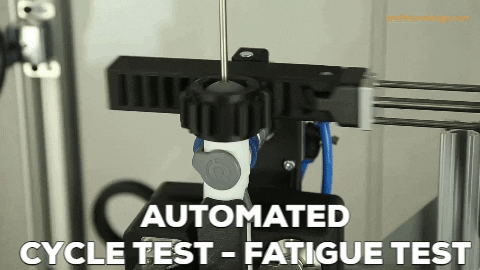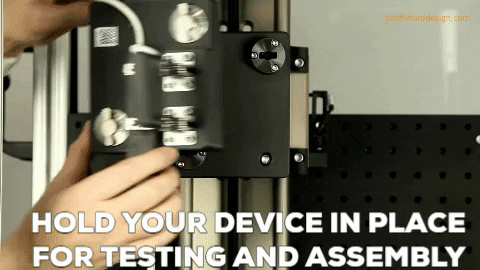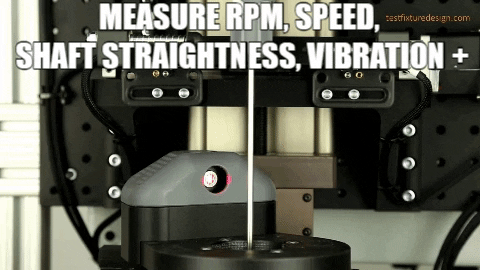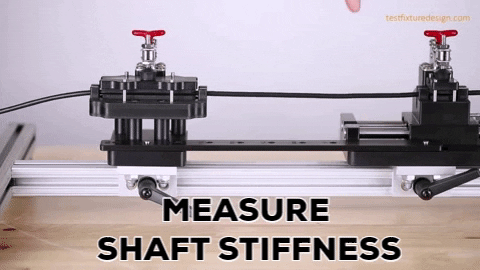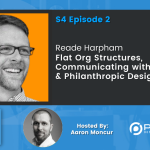Erin Thorp | How to Lead Your Engineering Team with Empathy

Who is Erin Thorp?
Erin Thorp holds a Bachelor’s degree in Civil Engineering and spent many years working in that industry as a project engineer as well as a project manager before pivoting her career into leadership mentoring. At the present time, Erin’s career is focused on professional speaking and leadership development coaching. She is also the author of “Inside Out Empathy”, a book she wrote about exploring the underestimated superpower essential for building, developing, and inspiring a rock-solid team.
https://www.erinthorp.ca/
Aaron Moncur, host
EXPAND TO VIEW EPISODE TRANSCRIPTION
SUMMARY KEYWORDS
empathy, people, engineer, project, team, engineering, civil engineering, leaders, build, years, career, develop, problems, thought, leadership, feel, coaching, erin, sit, conversation
SPEAKERS
Presenter, Aaron Moncur, Erin Thorp
Presenter 00:00
Hi everyone, we’ve set up this being an engineer podcast as an industry knowledge repository, if you will, we hope it’ll be a tool where engineers can learn about and connect with other companies, technologies, people, resources and opportunities. So make some connections and enjoy the show.
Erin Thorp 00:18
You know, generally, physiologically speaking, it’s easier for men to build muscle because of how you’re made up than it is for women. The same, the reverse is true for empathy.
Aaron Moncur 00:44
Hello, and welcome to another wonderful episode of The being an engineer podcast. We’re speaking today with Erin Thorp, who holds a bachelor’s degree in civil engineering and spent many years working in that industry as a project engineer and project manager before pivoting her career into leadership mentoring. Erin’s career these days is focused on professional speaking and leadership development coaching. She is also the author of Inside Out empathy, a book she wrote about exploring the underestimated superpower, essential for building developing and inspiring a rock solid team. Erin, thank you so much for being with us today.
Erin Thorp 01:23
Thank you for having me. It’s exciting. All right.
Aaron Moncur 01:27
Well, we’ll spend most of our time together talking about what you do now, which is leadership mentoring. But before we get to that, I’d love to dive in a little bit and talk about your your engineering career. For starters, what made you decide to become an engineer,
Erin Thorp 01:45
I wish there was a more elaborate story around this. But I grew up in a very small town, I actually grew up on a farm and so went to high school in a very small town. And when it came time to make that choice of what are you going to do with the rest of your life, I knew I knew a couple of things. I wasn’t staying in the small town and I wasn’t gonna marry a farmer. I didn’t want to be a nurse. And I didn’t want to be a teacher. And so when I put those things out in front of my high school guidance counselor at the time, he sort of looked back at me with this glazed over look and was like, well, then I don’t know what to do for you. Because those are sort of the options that were expected of girls at that time. So I just asked him, I said, Look, can I borrow your university calendar? Because this was back in the day when it was a book, you know, like, we registered on phones, and there was no internet. And so I took the university calendars home with me for the weekend, and started looking through them just kind of looking at different faculties and what could I do, and came across engineering, and it was something that I could get a job with, with a bachelor’s degree, right? I didn’t need a bachelor’s and then a masters and a PhD, or I didn’t have to go to med school or law school or anything else afterwards. And it’s it used all of the courses, like when I had all of the courses that I needed, and they were all the favorite courses that I wanted to take. So kind of by default, without really knowing what I was signing up for. I said, I’m thinking I’m gonna apply to the Faculty of Engineering, and just do science and math, because those are the things I love to do.
Aaron Moncur 03:25
Yeah, that’s great. I get that that answer more often than you might think that it was just kind of the default thing. I didn’t know everything about it, but it seemed Sure I’ll try this. And it worked out well.
Erin Thorp 03:38
Yeah. And I had, like, I don’t come from a family of engineers. I had one uncle, I have one uncle who is an engineer. And it was interesting when I told my grandmother that I was going to, you know, I’ve applied to the faculty, I’m moving away, and this is what I’m going to do. Her honest answer was what what are you going to do as an engineer, like, just take care of the men that do this? Because you’re No, right, like, so this is the era like I really came from this very kind of gender segregated. Like, this was a big stretch for
Aaron Moncur 04:11
I’m sorry, better word. It’s so
Erin Thorp 04:14
No, it’s okay. It’s the only thing to do because I you know, and I just sort of like it my dad at the time, he was like, no mother, she’s not going to take care of the boys. Like she’s going to be an engineer. She’s going to do the things you know. So it’s quite funny, but But yeah, like, I didn’t have a ton of role models. I didn’t really know what I was getting into. I just know that I liked solving problems. You know, I liked science and math. I knew I didn’t want to do anything to do with English or social studies. So by default, this is where I ended up.
Aaron Moncur 04:47
Yeah, well, good that you didn’t become like, you know, a public speaker or something not wanting to be involved with English, right? Yeah.
Erin Thorp 04:54
It’s funny never say never. People never say never.
Aaron Moncur 04:58
I think it’s interesting. that you had that mindset when you were younger, and maybe I could be wrong, maybe some of the other girls or women your age, then maybe they did expect to just grow up in stay in the small town and marry a farmer? What What was different for you during that time? I mean, why did you decide that? That’s how did you know that’s not what you wanted?
Erin Thorp 05:23
It’s a great question. And other than just like this deep knowing that’s really it. And I probably was a very difficult child to parent because I often had, you know, these strong, deep knowings, and probably was hard to convince otherwise. But it was just, I just knew that that wasn’t my I mean, we have I do have a family of nurses and teachers, so I can I can tell you with great. I had a great what’s the word like exposure to that? Those two career paths? And I knew, you know, by being exposed to those, these were not things that I wanted to do. Yeah. So it was it was sort of, I guess, you know, often they’ll say, You will either know what you want to do, or you know, what you don’t want to do, and I knew what I didn’t want to do. So it was sort of like pointing in a different direction.
Aaron Moncur 06:22
Yeah, yeah. All right. Fair enough. During your time as an engineer, what what were one or two of your favorite projects that you worked on before moving into leadership? Mentoring?
Erin Thorp 06:34
Yeah, I think so. It may be cliche, but I my first project is always one that stands out for me, I was on actually my internship in between third and fourth year university. And I was fortunate enough to get a placement with a construction company and I went in on on day one, a new project had landed, and we had to estimate it. So we did that, then we got, we’ve got awarded the contract. So we got to build it. So I got to go out to site and spend the next nine months on site building it and I got to turn it over right before I went back to university. So it always stands out as one of these like, almost like unicorn projects where I got to build it, you know, build the estimate, live the estimate, deliver the project, and we just had a really great project team, great owners, it was a very positive experience. And probably what kept me coming back into construction after I graduated. There were a lot of projects then kind of in between and mid career, I did get to go on to what we would call like a mega project, you know, $15 billion tons of people, lots of infrastructure. It was quite an eye opener, because you know, $50,000 is like pennies on jobs like that. Whereas if you’re used to delivering small commercial projects, $50,000, maybe half your budget. So it was just interesting to see that, that change in perspective in how people make decisions and what goes into that type of project. So that was definitely a highlight. And then I think probably my last project that I ever delivered. So I was project director led the team, we delivered an airport, an airline hangar at the airport. So again, it was a bit complex, you know, you’re working on a live airport site, planes coming in and over all these permissions that have to be given to erect cranes and steel and all kinds of things. But very unique. You know, you don’t always get to do those types of projects.
Aaron Moncur 08:35
Yeah, very cool. bookending, one of the beginning one at the end,
Erin Thorp 08:39
it was you know, and they really do stand out as some of my favorites.
Aaron Moncur 08:43
I had a civil engineer on the show a while back. And one of the things that was said about why they enjoyed civil engineering specifically was, if you’re a product engineer, maybe you’re developing, you know, I don’t know, iPhone cases or medical devices or whatever. They’re used for a year or two, or maybe three, and then they’re discarded, right? They they’re usable life is not extraordinarily long. But with civil engineering, the usable life is, you know, 50 100 years, maybe more, was there ever a sense of fulfillment rooted in that fact for you?
Erin Thorp 09:20
Absolutely. And never would I have thought of this prior or and it wasn’t part of the reasoning of doing this career. But I can drive all over the city that I live in and see projects that I was involved in still and Oh, wow. And go back. A few years ago, one of the projects I did was like a long term kind of rental condo facility and took the family and stayed there. Right. And they’re like, how do you know this building so well, mom and I’m like, because I built it, you know? And it’s like, I knew, you know, where the elevators are in the back doors and stairs and all the things and and so yeah, it’s A huge, there’s a huge sense of accomplishment and just, you know, pride in your work, because you can go back for years and years and years and see and see these things standing.
Aaron Moncur 10:10
Yeah, very cool. Well, at some point, you started to think to yourself, maybe civil engineering is not what I’m going to do forever. And you eventually pivoted into this career of leadership and mentoring and coaching, how did you make that transition? What What made you start thinking you wanted to change? And then kind of what was the process for for doing so? Yeah.
Erin Thorp 10:35
So I did my first coaching designation, actually, as a as a personal development goal inside my career, just to add it to my leadership toolbox. As a construction leader, I was mid career starting to lead bigger teams, lead leaders, and so just kind of wanted to increase my own capacity and that in that manner, and, and bring coaching as a tool to my to my leadership. And then it was interesting, because as I started to use it, you know, people, I got this feedback, like, you’re really good at this, you know, to be able to kind of sit and hold this space. And then, shortly after that, I ended up taking a 10 month leave of absence, our daughter was diagnosed with some learning disabilities, and was really struggling academically. We don’t have any family in town that could have helped us out at that time. And so over lunch, and a break down in the public, you know, food court at my corporate office building with my husband, we decided that it would be okay that I took a leave of absence and just focused on, you know, supporting our daughter and raising our other two kids. And so it was during that kind of 10 month leave of absence, after I’d had my coaching designation that I really started to, well, I found myself in a coffee shop for four hours a day. And when you’re used to having a full time career, that seems like a vast amount of space, right? So I started to kind of journal at first and then I was starting to write and then I was like, well, maybe I could kind of speak about my experiences and and what do I really think about leadership, and, you know, you’re reading some articles. And it’s just interesting when you give the brain space to kind of think and explore what comes about. And as I was writing, I had a mentor at this time. And, you know, I’m sharing kind of some of the things that I’m writing with her. And she’s like, I really think you have a book here. Like, I really want to encourage you to just do this. And I’m like, wait, wait, wait. I mean, I became an engineer, because I didn’t want to do English, and I’m not a good speller. And author was like, the furthest thing from something I thought I could be. And she’s like, Well, no, you’ve got some good ideas. And of course, of course, it needs to be edited. But you know, like, there’s a book here. So she really encouraged me to kind of explore that path. And so what I wrote the book while I was on my leave of absence, I came back into my career and was working through kind of, do I publish it? Do I not? Because I mean, it’s one thing to have a manuscript and a book written, it’s another thing to put it out into the world and say, hey, here are all my thoughts, right. And it’s very much like having another human baby out into the world, like you feel just as vulnerable, with, with your, your work out there, as you do with your children. So I was in my career, I published the book, and, and then I, you know, got some requests to do some speaking, that went pretty good. I’m still using the coaching in my career. And then I’m like, well, if I’m going to actually take this on the road, and, you know, do do this type of work, which I was enjoying, and I did really like, I better start to pay attention if I can actually use this and, you know, put into practice what I’m telling people they should be doing. So for the next five years, that’s what I did is I kind of, you know, okay, let’s try this on. Let’s lead with empathy. Let’s have these conversations about feelings, let’s get, you know, let’s explore kind of what impact it can have on a team. And after five years, I was convinced that it worked. I had led multiple projects, different sizes of teams in different industries. And I just wanted to have a bigger impact. And it was, you know, I can stay in construction and affect one team at a time, right one project at a time. Or I can put myself in a position where I can talk to more people impact more companies work with more teams, and just make a bigger impact in our industry. And so, you know, after five years of kind of doing it and having this little side hustle, I decided to pull the pull the pin so to speak and went out and fully on my own and and detached from a corporate paycheck, which after 25 years This was not an easy thing to do. Yeah, I bet. And it’s been the most amazing experience. It’s far exceeded my expectations.
Aaron Moncur 15:11
Correct me if I’m wrong, what I’m hearing is that you didn’t necessarily make a conscious decision initially to go into it coaching, mentoring, leadership training, you wrote this wonderful book, people enjoyed it, and you kind of got pulled into it. Is that right?
Erin Thorp 15:29
Yeah, it was very much a poll. And also just like this following of a desire, you know, to really kind of lead in this way. I mean, construction specifically, I mean, there’s engineering, and then there’s construction, and construction specifically is very much I mean, for years, I was told to toughen up, get a game face, like stop showing emotions. You know, it was very masculine in its in its energy and in its structure. And, and so the last five years, I was in it, I’m like, I’m just gonna sit over here in my feminine and like, let people talk about feelings and see what happens. And it was great. And it was it was just more of this, like following kind of this desire, and being kind of pulled along. So
Aaron Moncur 16:16
that’s wonderful. Okay, so our audience is mostly engineers. Why should engineers and specifically engineering leaders care about empathy, which is one of the main topics that that you focus on in your work?
Erin Thorp 16:35
So the short answer is because you have people rarely do I need engineering leaders that don’t work with people. We haven’t quite gotten there yet. Right? We still rely on people to do the work, to people to execute the work people to design the work, we have teams of people, and people have emotional needs, whether we identify as somebody who is emotional or not, as human beings, we all have emotions. And empathy is the skill of really understanding and communicating on an emotional level. And so I always say like, the work is not the complicated part of a leaders job. It’s the people. Right? Managing the people, people are messy. People bring all their stuff to work, people got stuff going on outside of work in their lives. Keeping them engaged, keeping them motivated, keeping them focused, like that’s the hard part of a leaders job. Executing the technical work is the easy part, usually, you know, in most cases. And so if you want to work with this team of people in the most effective way, empathy is one of the best skills you can bring to the table.
Aaron Moncur 17:59
Yeah, well said. I feel like empathy is one of a few buzzwords that I’ve started hearing more and more about over the past, say, five or 10 years. Being vulnerable, being genuine, having empathy. These are some of those buzzwords, I didn’t hear these words talked about very often, you know, 2015 10 years ago, but But over the past five to 10 years. I feel like I hear these words quite a bit. Why do you think we have made this transition to having more of a focus on on empathy, vulnerability?
Erin Thorp 18:33
genuineness? Yeah, authenticity is another one that comes to mind when
Aaron Moncur 18:37
locked into city. Yeah, great.
Erin Thorp 18:40
I think there’s a couple of reasons. I think that so the short answer is one people have choice. More choice now than ever before as to where and how they work, and to our efforts around diversity, equity and inclusion. So with choice, what I mean by that is, you know, there’s no longer one or two places an engineer can work, right, an engineer can do a lot of different things. You can start your own business, you can work globally, internationally, you can work remote, the stage of how and where and when we can work as an engineer has drastically changed in the last five or 10 years. And as an industry, we have had this huge push to bring in more women to diversify our workforce. And when you So the beautiful thing about human beings is that we are all different. And one of the most difficult things about human beings is that we are all different. Right? And so when you want to bring a team of people together, that think differently that come from different cultures and backgrounds that approach problems differently that have different experiences and different perspectives. One of the hardest things to do is to get them to see that as a benefit, and not as a threat. Because our our 4 million year old human DNA sees anybody that’s different than us as a threat. Right? If you have a different idea than I do, you’re a threat to me. And so empathy is the tool that allows us to come together in our diversity, right? And empathy is actually the bridge to get to inclusion.
Aaron Moncur 20:35
That’s a really interesting way of putting it, I have never thought of it quite that way. Empathy is the tool that allows us to get past the fear of He’s different than I am. She’s different than I am. That’s a very interesting mindset. So what if you’re not a leader? What if you’re simply an individual contributor on a team is is empathy, equally important, or still important at all?
Erin Thorp 20:58
I think it’s important because it’s, again, it’s that bridge, right? You’re going to have to work with people that are different than you people that think different than you people who have different experiences, backgrounds, cultural upbringings. And so for you to understand where they’re coming from and how they’re approaching this problem, you’re going to need to be able to sit with them, understand them, listen to them. And that is the skill of empathy. Right? So I don’t think it matters whether you lead the team or on the team. I think empathy is the skill set that everyone needs to be practicing and building. And it is a learned tool, just like public speaking, just like difficult conversations, just like you know, situational leadership, name any one of the leadership courses you’ve been on, right? There are tools that we that we learn in skills, we need to practice empathy is exactly the same way.
Aaron Moncur 21:51
Yeah, well, I’m going to take a very short break here and share with the listeners that Team pipeline.us is where you can learn more about how we help medical device and other product engineering or manufacturing teams develop turnkey equipment, custom fixtures and automated machines to characterize, inspect, assemble, manufacture and perform verification testing on your devices. Today, we’re speaking with Erin Thorp Thorpe, Erin, you work with a lot of different organizations these days, not just engineers. I’m curious, have you found that engineers treat empathy differently than non engineering professionals? And is there anything special about the way that you teach empathy to engineers versus non engineers?
Erin Thorp 22:36
So I think the the what I have discovered is, I would classify it as like technical versus non technical, instead of engineers versus non engineers. So people who live and work in people focus trades, like nurses, and this is so here’s the irony in my story, okay. People who work with people, nurses, teachers, doctors, like the caregiving people, they already know that they have to build and develop their empathy skills very quickly, to to be successful in their career, because they’re working with the people. Right? We go into these technical trades, and we thinking, well, we’re just going to solve problems, right, I’m just gonna get my math and my science out. And that’s kind of what you do in school, most of the time, you’ve got the odd, you know, Project thrown in here and there. But what they don’t tell you is that you’re going to have to graduate and work with people to solve problems, right? So we start building the skill way later in our careers than the non technical people. But we still need it because we still work with people, right? As an engineer delivering construction projects, I dealt with owners and architects and inspectors and city officials, I dealt with people all day long, right. And so we start later in the technical industries or in the engineering industries. And there is a bit of a perception that you’re either empathic or not, like you’re born with it, it’s kind of like brown hair, or blue eyes, like you either have it or you don’t. And I don’t, I don’t personally believe that that’s true. And there is a ton of research to support that, that empathy is one of these traits that we can learn. It is a learned skill. You have to want to learn it like anything else. Right. And I definitely have met some resistance over the years. And people who do believe that, you know, they just can’t tap into it. That’s a whole other thing. And I’m not a psychologist so we don’t go there. But for the most part, you know, there is a genuine curiosity because I do think that technical leaders right now one of the biggest problems they have is leaving their team engagement, diversity and inclusion, right building a team, getting them to perform getting them to come together. So there is this curiosity right now around like, what is the secret sauce to get a team?
Aaron Moncur 25:18
Yeah. Speaking of that the secret sauce to get a team to work together, can you share maybe one or two real world examples that that you’ve encountered where empathy was shown in teams and how that affected the situation?
Erin Thorp 25:33
Yeah, so one of the biggest things that I do, which, from my perspective seems so simple, but is often so impactful. And not done often, is just hold space for people to share with what their lived experience is. In fact, I spent the morning today with a team who’s looking, you know, setting direction for next year. And you would think that this leadership team who sees each other all the time and has multiple meetings every week, would have these conversations about like how they’re feeling. But they don’t. Right. And so, I mean, personally, for me, there are a couple of, of, you know, examples. So, when my daughter was diagnosed with her learning disability, I was fully prepared to quit my job, I had planned the date, I had done the math, I had run the numbers, I had to get agreement from my husband, I’m like, Okay, here’s the deal. And I went in to give my letter of resignation to my manager. And he said, Are you open to a discussion about this, because I think there might be a different a different way we could handle this. And at that, that was really one of the first times that I had ever encountered somebody willing to sit and talk to me about what my experience was at this point. And I was like, Will, yeah, I guess I’m open to it. But there really isn’t any other way to solve this problem. Like, I have to be with my daughter and my kids. And I can’t work full time. You know, and he’s the one that sort of said, like, we can give you a leave of absence, like you don’t have to quit, you know, we can give you some space. And if you do it on this date, you’ll still get your bonus. Like, he literally had thought through way more than I had ever considered. And I was like, yeah, that plan is gonna work. You know, this is great. And it was one of the first times that I felt like you really put yourself in my shoes, and really understood like, what I was going through with these kids, how getting that bonus would impact my ability to stay off for a longer period of time, and even talk to me through he’s like, Okay, well, you don’t want to come back before the summer holidays, because you’ve got young kids, you’re going to want to spend the summer holidays with them. And I’m going wow, I never even thought about that. You know, like, here’s somebody that, you know, I’m just trying to think like, the worst case scenario was I had to quit my job. So it was a really kind of a different experience for me. And one of the first that I was just amazed, you know, this is somebody taking the time to really understand what I’m going through. Yeah. And then I think, you know, the last project I delivered, which was where I really kind of focused on this is gonna be how I show up and how I lead. It really did make an impact, we had a very difficult project. Lots of things that could have gone wrong did go wrong. And because we were able to come together as a team, because we were able to continue, like focus on what, what was and treat each other in this human way. And have conversations about feeling and what people needed. We were able to turn that project over on the date that we said we would 18 months earlier, we gave the owner back some money. You know, like it was just all the things that you want to do at the end of a very difficult project. They actually happened.
Aaron Moncur 29:00
Wow, amazing. Thank you for sharing those. Yeah. When I, when I interview people on this show, and I asked them, what are some of the traits that you see the best engineers having in common? One of the most frequently shared answers is really good communication. It’s not the technical skills, it’s the communication. How do you think empathy relates to communication?
Erin Thorp 29:26
So right now, especially in our post COVID world, I think it is more relevant than it ever has been before because coming out of a pandemic, doesn’t matter where you lived in the world and how it affected you. We got used to living in this really heightened state of fight or flight for two plus years right constantly being worried about whether we were gonna get sick if someone else sick. You know what was gonna happen and and people are still um, We’re learning how to kind of reregulate back into a world where there isn’t this kind of threat all the time there. Which is not something that, you know, a lot of generations have ever lived through, right? Like, we’ve never experienced World War and pandemics and you know, big things like this. So we’re starting to reregulate, however, people are still their defense mechanisms are heightened. And right now, when the I mean, you could just ask them like, Hey, did you get that project report done, and they might lose it, right? They fly off the handle, because they’re at that heightened level already. They’re already dysregulated. And they see everything coming at them as a threat. Right, and the human brain, unless we work on it, and build the muscle will react instead of respond. So empathy right now can be the thing, the tool that stops you from getting into that, like really escalated conversation, right? So if you as a leader can see that, and you can recognize, like, oh, that’s an interesting response, you know, like, this wasn’t a personal attack or threat, like, can you tell me more about what’s going on with you, you can really save a lot of relationship damage, and collateral kind of impact, from miscommunications that are happening right now.
Aaron Moncur 31:29
Okay, I have a question for you. I’m really curious to hear your take on this. You know, when you you walk into work in the morning, people say, Hey, how’s it going? Yeah, how are you doing? And you respond good. Everything’s good. You know? And that’s almost the default canned response, right? Like, no one really tells you how they’re doing. They just say, oh, yeah, good. How’s it going with you? I’m good. Okay. All right, you know, and then you go on with your day? Do you ever tell people really, truly what’s on your mind? Or do you feel like people ever really tell you what’s on your mind? And how do you get past that?
Erin Thorp 32:01
Yeah, so great question. So I think it does start with you having to be willing to share a little bit. And this is this is that. So the definition of vulnerability is just like, exposing yourself to risk. Right. And so if I share with you that I’m having a difficult morning, or I just fought with the kids, or the husband and I had a brief, you know, encounter about the car payment or whatever, you know, like, there’s some kind of, you know, thing going on in my life, I’m exposing myself to risk, right, because you might judge me for that, like, that’s ultimately what might happen. So that’s this kind of piece on vulnerability. And the more we can do that, the more it shows, it actually exposes our humaneness and what we connect to in each other as our humaneness. We don’t connect to the shiny perfection, right? We may want to be that, or we may think we want to aspire to that, but when we feel closest to people is when we actually can see their imperfections. Right? So to answer your question, yes, I do tell people now, exactly what’s going on, you know, in to whatever degree that might be. I mean, if they’re walking by and kind of already on the way down the hallway, yeah, it’s gonna be a shorter answer than if they actually stop and we’re face to face or if we’re on the phone or something like that. But I do try to be as transparent as I can about really what’s going on, you know, maybe I didn’t sleep great last night, and I’m feeling tired today, doesn’t mean I’m not going to show up and work. But I might just be a little bit off.
Aaron Moncur 33:45
That’s great. Yeah.
Erin Thorp 33:47
And I think, you know, if you want your team to start to do that, as leaders, we have to be willing to sit and listen. And one of the hardest parts about empathy for people who are trained to problem solve, is they want to fix. Right? So yes, it’s an engineering trait, because we went to school for four years, eight years, six years, however long you went to school, and all they did was train you how to problem solve, right? That’s what we learn to do. We learn how to solve problems in the fastest, most efficient way possible. So when we sit with human beings, we treat them like they’re an engineering problem. And we go, tell me your problem, and I’m gonna fix it for you. Yeah, and nine times out of 10. All that person needs is a container to share their feelings or what’s going on with them. They actually don’t need to be fixed. And just the simple act of just witnessing that and holding space for them and going like, oh, yeah, I know. I know how rough it is. To be up with toddlers all night long. Like, grab the extra cup of coffee and let me know when you’re ready to sit down and start the day, you know, can can go miles towards building trust and engagement and bye If your team then offering any kind of fix, because there really is no fix. For a lot of our stuff we just want to be heard.
Aaron Moncur 35:09
This sounds exactly like a conversation I’ve had with my wife more times than I care to admit to. Yes, fix my problem. Just listen to me.
Erin Thorp 35:19
Every single empathy workshop I run into, this always comes up, especially if the room full of men, they’re like, Oh, this is why my wife gets so mad at me when I tried to fix her problems. I’m like, yes, please just go home. And listen,
Aaron Moncur 35:31
not just me. Now. All right? No, well, for better or for worse, the field of engineering is predominantly comprised of men. How do men treat empathy differently than women? And what tools or practices do you use to help men specifically develop empathy?
Erin Thorp 35:52
Yeah. So I would say more often than not, men do believe that this is like an innate trait that they are either born with or without, and most of them think they don’t have it. So you know, for me, this is this is no different than, you know, generally, physiologically speaking, it’s easier for men to build muscle because of how you’re made up than it is for women. Right? Like, kind of women still build muscle? Yes, we can. Do we have to work a little bit harder at it? Yes, we do. The same, the reverse is true for empathy, right? Do women are we a little more hardwired? I don’t know, if it’s hardwired or we just get better. You know, we’re more exposed to it because of child rearing and staying home and you know, this kind of nurturing side that tends to be present. But men can develop that as well. Right? And so it’s how much time and effort are you putting into the practice? The tools that we kind of go to where we start. Often it’s easiest for men to tap into empathy when they think about pets, children and parents. So we get them to sort of think about, you know, what are this is how they can connect emotionally, right? And they get to thinking about it. What’s interesting to me, and what has come out of this work is in our industry, there is this perception that men don’t show emotion. However, men show emotion all the time, it just looks different than women. Right? We might have pounding fists on the table, we might have laptops slamming shut, we might have louder voices, more aggressive type behavior, but that is all emotional expression. As a male dominated industry, it’s just acceptable. Right? But if I cry, because that’s how I want to express emotion, all of a sudden, I’m labeled as emotional. Right? If I was to yell and scream, and slammed my lap shot top shut, I might be okay. You know, that might be acceptable.
Aaron Moncur 38:12
I don’t know. It’s not like a double standard. There. It is.
Erin Thorp 38:15
Right? And so it’s, it’s, it’s calling out and getting us used to the fact that look, we’re all emotional beings. And we all, we all express it differently. And just because, you know, here’s where I’ve had to shift. So I’ve had to shift by getting used to male expression of emotion that is more yelling and screaming and not feeling threatened by that. And learning to hold the space. And what I have noticed in my male counterparts, is they have to get used to crying and tears and not being threatened by it, because it doesn’t mean anything other than this person is having an emotional reaction. Right? So talk to me about what’s going on. Why are you upset? Right? Both are upset, both could be frustrated. Both could be overwhelmed. It just is coming out a little bit differently.
Aaron Moncur 39:11
Yeah, for sure. Do you think that empathy and masculinity are mutually exclusive? Or? Or can a man have masculinity and empathy? Do they complement each other? Or can they?
Erin Thorp 39:28
I think they really can. And especially in this kind of new definition of what it means to be a leader. We’ve heard a lot of talk lately, not lately, but you know, in the last 10 years around servant leadership and really being in service of So leadership, the definition is shifting as well. It’s not really about being in charge. It’s about being in charge of those that are in your charge, right like caring for the ones that are underneath you. And so I think that they are not mutually exclusive. I think you can add salutely be masculine or feminine and have empathy. Because empathy is not a weakness, and it also doesn’t mean you’re a doormat and going to be walked all over, right? Because I think that’s where we get the more feminine side of the definition where it’s just like, I’m gonna give in to everybody, and I’m never gonna get a deadline met, and I’m just going to, you know, it’s going to be whatever, flowers and sunshine and, you know, but nothing’s ever gonna get done. And I don’t think that’s, that’s not really what we’re talking about here, either. Right? It’s, it’s about sitting and witnessing and holding space for and still moving the business forward.
Aaron Moncur 40:37
Yeah, yeah, for sure. Okay, just one or two more questions, and then we’ll wrap things up here. What’s one thing that engineers listening to this can do today to develop greater empathy working within their teams.
Erin Thorp 40:52
So I would say, it’s actually developing empathy for yourself. So we tend to be our hardest critic, and our inner voice, whether whatever you call that the judge, the critic, the committee, the whatever, can be quite loud. Sometimes, we can hold ourselves to some pretty exacting standards, we can beat ourselves up really quite well and say things to ourselves that we would never verbally say out loud to any other human being on this planet. And it’s getting where where I always start with people is you’ve got to get aware of that voice. And you have to start actually talking to yourself, the way you would talk to a friend. Because no matter how much you try to practice empathy with others, if you can’t do it with yourself, first, it’s never going to come out as genuine or authentic with other people. There’s always it’s always going to be tainted by this judge.
Aaron Moncur 41:51
We all have a lot of demands placed on our time, whether we’re engineers or in some other professional together, developing empathy could be seen as just just one more thing that we have to do just one more thing to remember. Any tips for practical ways that we can develop empathy with without feeling like it’s just one more burden that’s being placed on us?
Erin Thorp 42:16
Yeah. You know, it can just start at home with like, how was your day, and really listening? Right? And not trying to solve the problems of somebody else’s day? You can start with your kids, with your partner, with your friend over drinks, or at dinner, whatever, right? But just that, you know, you talked about passing in the hallway, and how was your morning? Or how are you today, like really just starting to dig into that interaction in your life. It doesn’t take very long before. The the empathy circuitry in our brain is much like any other muscle in our body. So the more you use it, the stronger it gets. And then pretty soon it becomes automatic. Right? So looking, looking at those everyday interactions that you’re already doing, and just change, changing slightly tweaking a little bit how you show up. Like, I’m going to talk to my partner tonight about how their day was, and I’m not going to solve any problems. I’m going to sit in listen.
Aaron Moncur 43:22
Erin, you seem to be very easy to talk to. I wonder does Does anyone ever? Well, I’m sure this happens all the time. I guess, a better way to ask this. Do you ever feel like you’re people’s therapists? Because people just open up to you and like, dump all this stuff onto you? And you’re like, Okay, well, didn’t really want to go that far. But here I am.
43:45
Yes, actually, it’s quite funny. I have a number of clients that are like it’s therapy our with Erin.
Aaron Moncur 43:51
It, I could totally see that. Yeah.
Erin Thorp 43:54
Yeah. And I mean, I think this is one of the things like as you develop your empathy, capacity, I always leaders, so here’s kind of the difference, you’ll know that you’re developing your empathy capacity, when it feels more like there’s a bowl on the table that’s catching the conversation instead of the backpack on your back. If you walk away from a conversation, feeling like you’re carrying it in your backpack, then you have not built this kind of strong empathy muscle because you’re taking on all the problems and you’ve put them in the backpack and you’re taking them away to fix them. If that makes sense, interesting. Yeah, that’s a good analogy it in the conversation and there’s a bowl on the table, and both of you are depositing into the bowl. And both of you get to take out what you want. And you feel like, yeah, they’ve just unloaded all of this stuff. But you know what, it’s not mine to fix and I don’t need to walk away and I’ve taken what I need to and I can, you know, I can offer this support or I can put that in place that’s going to alleviate some pain that they might be feeling, but I’m not taking on the problems of the world. Then you know, you’re starting to develop your capacity.
Aaron Moncur 44:58
There It really is kind of amazing how just talking about something can feel like a solution, even if it isn’t really, I think, probably women have known this forever. And man, we’re still trying to catch up and figure that out. But we’re learning slowly by slowly, little by little, yeah, there’s a guy on my team who routinely will ask me, What’s, what’s your stress level? And how are you feeling? And I really appreciate that, you know, I don’t get a chance to have those kinds of conversations very often. So it’s, it’s nice to be able to just share what’s going on with me. And it helps it does help.
Erin Thorp 45:33
Well, and I think that’s just it, right? If we want to have a different experience, and really like, you know, we get to decide what masculinity or femininity means. It’s, you know, we can change that definition at any time. And so, asking someone what their stress level is, and being able to sit with them through a conversation about how they feel, doesn’t mean you’re any less masculine than if you, you know, knuckle bump or fist bump at the door and just gloss over it.
Aaron Moncur 46:03
Ya know, conversely, I think it endears you to that person. I went well, yeah. All right. Are that person to you? Maybe I said that backwards. Anyway, you know what I mean? Well, Erin, this has been such a pleasure. Thank you so much for spending some time and sharing all of this insight and wisdom with us. Is there anything else that we haven’t talked about that you think we should?
Erin Thorp 46:27
know? I don’t think so. I mean, it is a practice. It’s it’s one, I think that’s well worth the investment in any team. And I look forward to continuing to work with teams that want to do this work. I mean, that’s the thing, right? You have to be you have to be willing to go here to make work.
Aaron Moncur 46:45
Yeah. Yeah. Great. Okay. Well, how can people get a hold of you?
46:49
I’m on LinkedIn is probably the easiest place social media wise, or at my website, which is www.ErinThorp no E on thorp.ca.
Aaron Moncur 46:59
Wonderful, and we’ll put links into the show notes.
Erin Thorp 47:03
Okay,Perfect!
Aaron Moncur 47:03
Erin, thank you again, so much. This has been wonderful. I really appreciate having the chance to talk with you today. Thank you.
Erin Thorp 47:10
Thank you, you too.
Aaron Moncur 47:13
I’m Aaron Moncure, founder of pipeline design and engineering. If you liked what you heard today, please share the episode. To learn how your team can leverage rour team’s expertise developing turnkey equipment, custom fixtures and automated machines and with product design, visit us at Team pipeline.us. Thanks for listening.
We hope you enjoyed this episode of the Being an Engineer Podcast.
Help us rank as the #1 engineering podcast on Apple and Spotify by leaving a review for us.
You can find us under the category: mechanical engineering podcast on Apple Podcasts.
Being an Engineer podcast is a go-to resource and podcast for engineering students on Spotify, too.
Aaron Moncur and Rafael Testai love hearing from their listeners, so feel free to email us, connect on Facebook, Twitter, Instagram, and subscribe on Apple Podcast and Spotify!
About Being An Engineer
The Being An Engineer podcast is a repository for industry knowledge and a tool through which engineers learn about and connect with relevant companies, technologies, people resources, and opportunities. We feature successful mechanical engineers. We interview engineers who are passionate about their work and who made a great impact on the engineering community.
The Being An Engineer podcast is brought to you by Pipeline Design & Engineering. Pipeline partners with medical & other device engineering teams who need turnkey equipment such as cycle test machines, custom test fixtures, automation equipment, assembly jigs, inspection stations and more. You can find us on the web at www.teampipeline.us
You’ve read this far! Therefore, it’s time to turn your headphones up and listen now to this episode to learn all these. Don’t forget to tell your friends who might like this too!

